#ángel martín
Text
Por desgracia, los seres humanos no llevamos de forma visible un medidor que nos permita comprobar cuánto se está esforzando de verdad la otra persona.
Por si las voces vuelven (Ángel Martín)
181 notes
·
View notes
Text
El humor en lo "paranormal"
Un podcast de humor fuera de lo normal y lo cotidiano
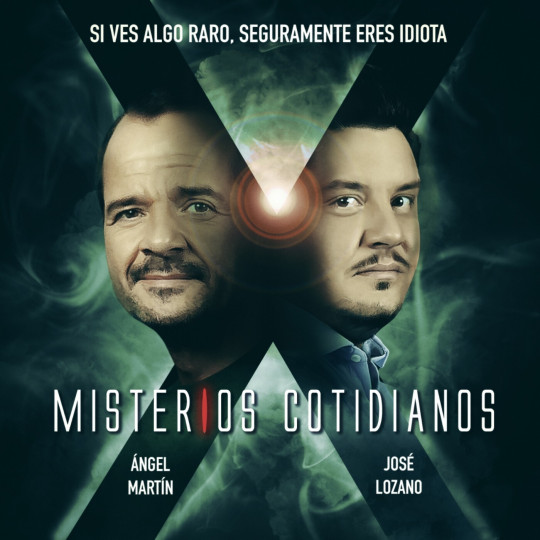
Misterios Cotidianos es un podcast presentado por Ángel Martín y José Lozano en el que tratan diferentes “misterios” que sufren tanto ellos en su día a día como los espectadores que les envían sus experiencias por correo. Además, el programa es en directo a través de la plataforma Youtube, por lo que los espectadores pueden hablar por el chat del directo y comentar lo que quieran.
Su premisa es clara y concisa, “si ves algo extraño, lo más normal es que seas idiota” y es así como desarrollan los diferentes capítulos del podcast. Por ejemplo, en este último se habla sobre dos anécdotas de espectadores. La primera comentaba que escuchaba risas en el baño, cuando debería estar sola en casa ya que su novio se había ido, una historia paranormal que termina siendo mentira ya que el novio era el que estaba en el baño, o la segunda que es aún más anómala, un gaditano pensaba haber visto un extraterrestre de noche y en realidad era un “runner” que corría hacia atrás con luces en la cabeza ya que era de noche y para no chocarse.
Diferentes anécdotas que parecen paranormales y que terminan siendo humor y risas donde la música no predomina, se escucha una leve melodía de fondo pero a muy bajo volumen mientras hablan y comentan las historias. Es una conversación entre dos personas, dos amigos que se ríen y comparten sus acontecimientos “paranormales” y que invitan a más gente a enviar sus historias.
Un podcast interesante de escuchar si quieres pasar un buen rato. También puedes realizar diferentes tareas ya que no tienes que prestar toda tu atención a ello, es un podcast de humor y no uno de análisis, narrativo o de investigación, por lo que es más relajado.
Además de realizarlo en directo, se puede escuchar en otras plataformas de audio como Spotify o Ivoox.
5 notes
·
View notes
Text
Hablando de salud mental desde la experiencia
Ángel Martín se reúne con Mercedes Milá para hablar tranquilamente de sus vivencias con la salud mental
En 2021, el cómico y presentador Ángel Martín publicó su libro Por si las voces vuelven, donde cuenta el antes, el durante y el después de su brote psicótico. A raíz de este libro y de los comentarios que le hacía la gente por la calle y en redes sociales, decidió crear un podcast semanal con el mismo título.
Lo primero que choca al escuchar el podcast es la música: no hay. Ni entradilla, ni música de fondo ni despedida. Nada. Lo único que se escuchan son dos voces, en las que, obviamente, se centra el foco y ayuda a resaltar lo más importante de este podcast: lo que se cuenta.
Su primera invitada es Mercedes Milá. Ambos se sientan para hablar de las depresiones que han atravesado y cómo esta enfermedad les ha impactado y cambiado la vida. Durante algo más de 1 hora, podemos escuchar ambos testimonios y, quizá, entender un poco más de esta enfermedad de manos de dos personajes tan públicos y conocidos como ellos.
De hecho, lo primero que explica Ángel es que la gente le daba las gracias por haber contado su experiencia siendo un personaje conocido, ya que no solía ser tan común escuchar a famosos hablando de salud mental. Hasta ahora, que cada vez se habla más y mejor de ello.
Aunque no estén apoyados por un guion y Ángel le diga a su invitada que quiere que sea solo una charla, podríamos considerar este podcast como género de entrevistas, ya que, cada semana, el presentador recibe a un invitado diferente para hablar sobre un tema central: la salud mental.
Hay un momento en este primer programa que define muy bien cuál es su objetivo: Mercedes le pregunta a Ángel si ella puede hacerle algunas cuestiones y él insiste en que no es una entrevista, que para él este podcast se trata de “tener conversaciones de loco a loco”.
Y es que los dos coinciden en que es muy importante hablar de enfermedades mentales con alguien que las haya sufrido, porque sino es imposible de explicar, es imposible que te entienda alguien que no lo ha vivido. Mercedes Milá recuerda algo que le dijo Jordi Évole sobre esta cuestión: “las sensaciones, el dolor es tan difícil de describir, que la única manera es hablarlo con alguien que lo ha pasado”.
De esta forma, tenemos la gran suerte de disfrutar de la sinceridad de Ángel Martín y Mercedes Milá en un podcast donde hablan de los inicios de sus enfermedades, las drogas que consumían, lo duro que fue compaginar sus trabajos con dichas enfermedades y las personas que les acompañan durante el camino.
Puedes escuchar el Podcast aquí.
6 notes
·
View notes
Text
Si necesitas petar, PETA
youtube
0 notes
Text
Ángel Díaz Martín 🇪🇺🇪🇸
9 notes
·
View notes
Text

Clint Walker-Anne Francis-Ángel del Pozo "Pancho Villa" 1972, de Eugenio Martín.
6 notes
·
View notes
Note
hi, I send you an ask about this because there is more space than the text chat. I find interesting what you said about Alonso and people from Madrid being posh, and I want to ask you what you think in general about spanish riders and their origin. I explain myself: italian riders, of every class and championship, don't usually come from wealthy families. For example Vale, Dovi, Sic, Corsi, Paso, Petrucci, Iannone, Pirro, Morbidelli, but also the younger like Bassani, Nelli, Mig, Fenati, Enea, they come from 'normal' middle class or working class families, and they usually got into this sport because they come from Emilia Romagna (where it's basically the traditional sport, more popular than football), or because they have relatives that were racing riders or mechanics or had some contact with the racing world (for example Petrucci's father was a truck driver who drove trucks for some motogp teams). We don't have many who clearly come from wealthy families (of course when I talk about wealthy families I don't mean anything remotely close to f1 drivers families), but the problem now (well, in the last 10 years or more) is that it's so difficult for young riders to find a sponsor to support their careers (wssp and civ riders often point that out, and even in wsbk there are riders who hardly find some help despite their talent, like Bassani, who's son of a construction worker). Then the fact that a rider is more or less arrogant or one to brag is not particularly related to their origin, but it's probably more related to how they were educated by their families (for example, despite not being particularly rich, Iannone has always been a spoiled child, according to Pernat). I don't want to go into the political topic (if they are conservative or not etc) because usually they are private about their personal opinions, but also I suspect some of them just live in their own world (in general, especially in the past, motorcycle riders are known to be just crazyheads and out of the ordinary). So I wanted to ask you about Spanish riders, and if it's a similar situation or not. I always had the impression it's a similar situation, considering that we are the closest countries when it comes to motorcycling.
When I meant Alonso being posh, I meant in the way he dresses himself, and he talks in Spanish. Also, it's about Madrid in general being a much more expensive area/city than other part of Spain.
So if we talk about traditional areas of the sport, then it's the Mediterranean area (Catalonia, Valencia, and Balearic Islands and more recently Murcia too).
Catalonia is/was because of the motorcycling industry was set in Barcelona (Derbi and Bultaco for example) and at the beginning riders either come from Barcelona or moved there. (An example Ángel Nieto, who was living in Madrid when he discovered motorcycling, moved to Barcelona because he knew it was his only way to race).
I'm not sure about how Valencia and Balearic Islands come to play, but I imagine Valencia is due to Ricardo Tormo (2 times 50cc world champion) and because small villages allowed kids to race in between villages on their fest (according to Aspar). Apart from that, Cuna de Campeones, which is a no profit and public riding school, is doing wonders (started in 1999 and it's still going). It's a public riding school where they allow kids from anywhere in the world and different backgrounds, to learn how to ride a bike. They train the kid to be the best on the track, but also outside of racing just in case hey don't make it. Some of the riders from the school: Joan Mir, Jorge Martín, Raúl Fernández and Franco Morbidelli.
Same with the Balearic Islands, not sure, how it started, but having Jorge Lorenzo, Augusto Fernández and Izan Guevara is doing wonders for them.
And now how did they get into racing?
Some of them because they parents were into bikes. Dani's dad had a motocross bike and Dani's first bike was a motocross one, but he did not start competing until later on a mini/pocket bike. Pol, Aleix, and Jorge Lorenzo's first bike were done by their parents, and apparently Jorge's mom was a rider too (not sure). I think Joan's dad own a rental shop in Palma de Mallorca where he had surf related stuff and bikes, but he also had a cousin who was into bikes. Pablo and Gelete were born into a family of racing. So for most of them, racing started because they had someone close to them who was into racing. Maybe some of them got into it due to the Lorenzo-Pedrosa fight or Marc's tittle because it made TV focus on motorcycling.
Backgrow. Most of them come from working class too, and basically being in the right place in the right moment. For example, Dani was out of racing even before he started because his parents could not afford to get a 125cc bike, and he owns his career to Puig. Chicho did not have the funding so he contacted with everyone he could and send tons of letters and video until Jorge got admitted to Montlau. Montlau is another racing school, but they also train mechanics (Rins also started there). Joan for example, he said he could not choose his path, he went from promotion cup to promotion cup because they did not have the money and if did not win, it could have been the end of his career. Jorge Martín had said his dad had to ask money from members of his family because they were living out of 600 euros, I'm guessing it was out of the state support money, and that he is so greatful for Aleix aids. Augusto did not follow the normal path due to the lack of money, he comes from European Stock 600. So yep middle or middle-lower class.
The one I know who did not have that problem was Tito. His family is the owner of a jewellery chain store where they sell expensive brands and custom-made jewellery. In fact, their parents did put money into the Avintia team with the sponsorship deal so Tito could race.
I was not into Alonso López until this year, but 'La Caja de DAZN' was pretty revealing. Apparently he is from the upper-middle class, as his parents had 2 residencies, both in Madrid. He was born in the Madrid city, but the rider in him was born in 'Los Molinos' where his parents had a second residency. He got into expensive sports as a hobby, golfing and ski/snowboarding and according to him, he was good, so he spends a lot of time and money. In 2021, his dad had to sponsor him for the last couple (not sure if only the last 2 or some more) races of the European Moto2 championship, but he also was sent to live in Valencia due to his erratic behaviour. Alonso did not have to worry about the money, nor is he worrying now as he could choose to say 'no' to do a second year in the European Moto2 and wait for Fenati's results. So let's say he is not wealthy, but he is in a comfortable position.
I agree that getting sponsors, is a struggling thing here too because let's remember that Tito's parents had to put money for him to stay in the championship, despite him being a Moto2 World Champion or that Alonso was kicked out of Moto3 due to the lack of funding, and he could not go into endurance for the same thing.
#Ask#Racingmuppett's tag#MotoGP#Moto2#Moto3#Ángel Nieto#Ricardo Tormo#Cuna de Campeones#Dani Pedrosa#Jorge Lorenzo#Aleix Espargaró#Pol Espargaró#Álex Rins#Joan Mir#Augusto Fernández#Izan Guevara#Jorge Martín#Franco Morbidelli#Chicho Lorenzo#Alberto Puig#Pablo Nieto#Gelete Nieto#Ángel Nieto Aguilar#Marc Márquez#Tito Rabat#Alonso López#Jorge Matínez#Jorge Martínez Aspar#Aspar
10 notes
·
View notes
Photo
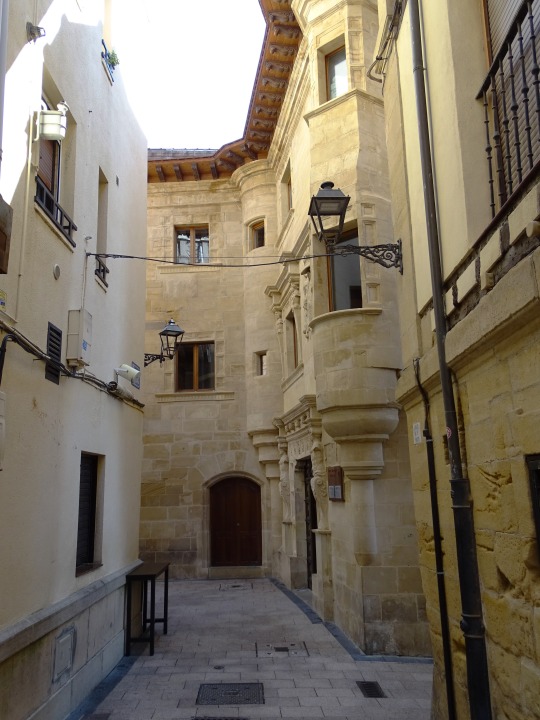
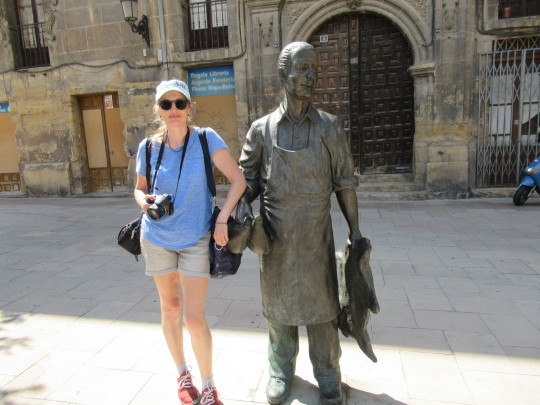
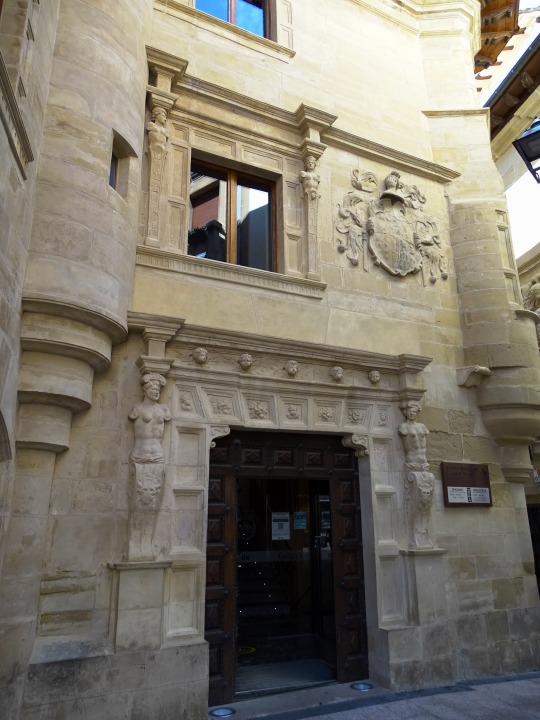
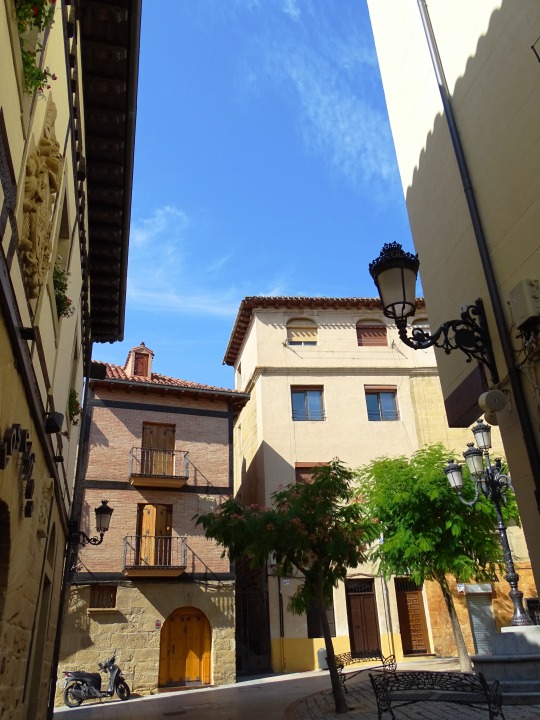


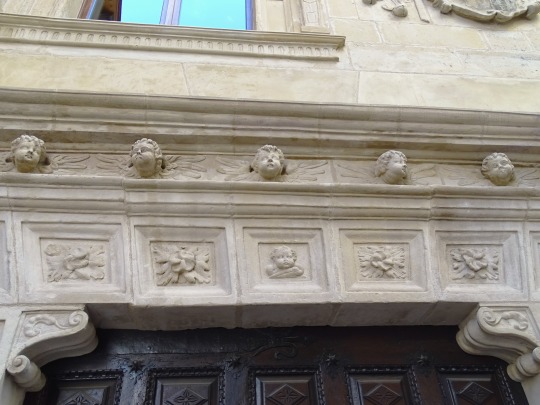



Haro, Spain (No. 2)
During the Roman rule of Hispania, a fort called Castrum Bibilium was built in the cliffs of Bibilio. The first mention of Haro dates back to the year 1040, in a document of king García Sánchez III of Navarre"el de Nájera". Alfonso VI of León and Castile entrusted the tenencia to Diego López I de Haro after the death of Count García Ordóñez and the first of the lords of Biscay to attach the name of this town to his patronymic was Diego's son, Lope Díaz I de Haro.
Since the early 19th century Haro has established a worldwide reputation for being the most important wine town in the Rioja wine region and remains so today even though the number of Bodegas in the region have multiplied 8 times to 574 during the past 50 years (1970 to 2020).
The key focus of this reputation is at the Barrio Estación where 7 of the best Rioja Bodegas are located - namely Bodegas Bilbainas (founded 1859); Compañia Vinícola del Norte de España [CVNE] f.1879; R. López de Heredia (f 1877); Bodegas Roda (f 1989); Bodegas Muga (f.1932); Bodegas La Rioja Alta S.A. (f.1890).
In other parts of the town are Bodegas Martnez Lacuesta (f.1873); Bodega Berceo (f.1801); Carlos Serres (f.1896) and Ramon Bilbao (f.1924). Féderico Paaternina was founded in 1897 and became a very influential name in the wine business in Spain until its final collapse in 2010 when the Bodega closed and the brand of Banda Azul was sold to Berberana following a very difficult period after the appropriation of their owners Rumasa in 1983 by the new Spanish Government and the failure of the subsequent owner to keep the company as a going concern.
Source: Wikipedia
#Palacio de Paternina#Botero by Ángel Gil Cuevas#Haro#La Rioja#España#Battle of Wine by Maria Pilar Gutierrez#Calle San Martin#Plaza San Martín#alley#old town#original photography#summer 2021#architecture#travel#cityscape#tourist attraction#landmark#sculpture#public art#Spain#Northern Spain#Southern Europe#street scene#pedestrian zone
5 notes
·
View notes
Text
Mi crítica del concierto de Zahir Ensemble esta noche en el Espacio Turina.
#zahir ensemble#antonio moreno#miguen ángel berbis#aglaya gonzález#daniel muñoz#martín matalón#luciano berio#luis buñuel#cine#música#music
0 notes
Text

Miguel Ángel Martín.
1 note
·
View note
Text
HISTORIADORES REFUTAN A EMILIO OCAMPO, POLÉMICO ASESOR DE MILEI: “SAN MARTÍN FUE UN PERSONAJE TRANSATLÁNTICO QUE DEFENDIÓ LA LIBERTAD”
El economista aseguró que el prócer no fue el Padre de la Patria ni el Libertador de América, sino un mito creado por Bartolomé Mitre; la opinión de Miguel Ángel De Marco, Camila Perochena y Jimena Tcherbbis Testa
Daniel Gigena
Después del papa Francisco, Raúl Alfonsín, los investigadores del Conicet y el INCAA, le llegó el turno a José de San Martín. El candidato a presidir el Banco Central si…

View On WordPress
#Autor Daniel Gigena#Camila Perochena y Jimena Tcherbbis Testa#Economista Emilio Ocampo#Historiadores#La Nación#Miguel Ángel De Marco#Padre de la Patria#San Martín
1 note
·
View note
Text
Solo necesitas un poco de tiempo, espacio y calma para asumir lo que ha pasado y empezar a remontar. Porque, aunque ahora mismo no lo creas, remontarás.
Por si las voces vuelven (Ángel Martín)
334 notes
·
View notes
Text
Exposición “History / Stories”, Colectiva
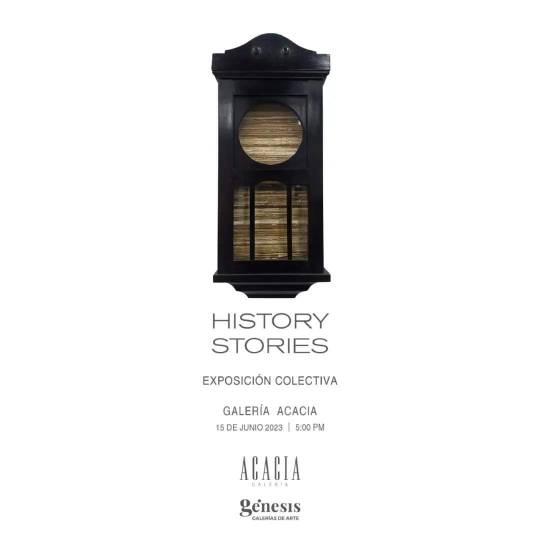
View On WordPress
#2023#Abel Izquierdo#Alexis Linares#Aluan Arguelles#Armando García Menocal#Consuelo Castañeda#Duniesky Martín#Ernesto Fernández Nogueras#Ernesto González Puig#Ernesto Javier Fernández Zalacaín#Esterio Segura#Frank Mujica#Galería Acacia#Inti Hernández#Jorge Luis Santos#Jorge Wellesley#José Ángel Toirac#José Ángel Vincench#José Emilio Fuente JEFF#José Manuel Fors#Julio Bello#Linet Sánchez#Liset Castillo#Luis Gómez#Muestra Colectiva#Reina Ledón#René Francisco#Ricardo G. Elías
0 notes
Photo
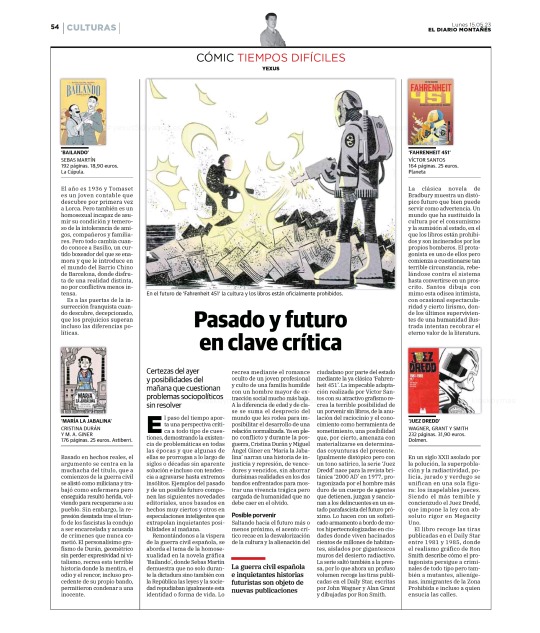
EL DIARIO MONTAÑÉS
0 notes
Text
Gerardo Morales: "Los jujeños ratificaron la paz, el orden y la transformación"
Gerardo Morales: "Los jujeños ratificaron la paz, el orden y la transformación"
“Ganamos la Gobernación de Jujuy“, anunció Gerardo Morales a partir de cómputos propios provisorios que reflejaron un triunfo de Cambia Jujuy con casi el 49% en todas las categorías, guarismos que consagran a Carlos Sadir como próximo gobernador de la provincia.Además, en compañía de la primera dama, Tulia Snopek, exteriorizó su gratitud a los jujeños “por su amplia participación en la jornada…

View On WordPress
#Ángel Rozas#Cambia Jujuy#Carlos Sadir#Eduardo Costa#Emiliano Yacobitti#Freddy Morales#Frente Cambia Jujuy#Gerardo Morales#Gobernación de Jujuy#Gustavo Posse#Horacio Rodríguez Larreta#José Cano#Mario Negri#Martín Lousteau#Maximiliano Ferraro#Miguel Nani#Natalia Neme#Raúl Chuli Jorge#Ricardo Buryaile#Tulia Snopek
0 notes
Text

Ángel Díaz Martín 🇪🇺🇪🇸
11 notes
·
View notes